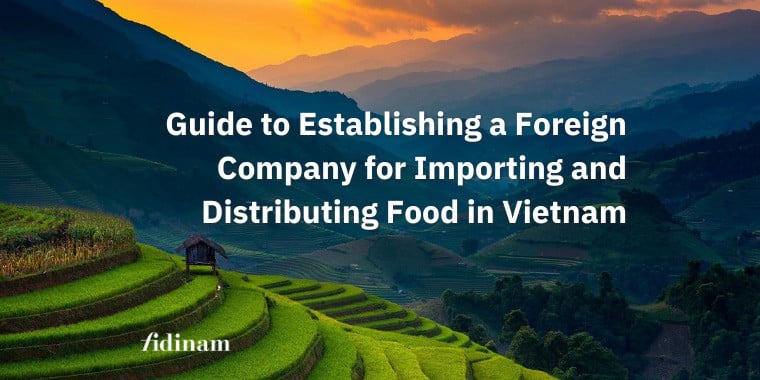
Vietnam’s middle-class population is the fastest growing in Southeast Asia, estimated to grow to 56 million by 2030, while the number of individuals with a net worth of more than US$30 million will increase by 26% by 2026.
With more disposable income, Vietnamese consumers are showing more interest in imported food and beverage and health and well-being products. In recent years, Vietnam has witnessed a notable shift in consumer preferences, with an increasing appetite for international cuisines and products. This growing demand has paved the way for foreign companies to capitalize on a diverse range of opportunities within the Vietnamese food market.
In this article, we embark on a comprehensive exploration of the conditions and procedures that foreign enterprises must navigate to establish and distribute imported foods within Vietnam.
According to the commitment of Vietnam in international treaties such as WTO, AFAS, VJEPA, TKFTA, EVFTA, CPTPP, Vietnam allows foreign investors coming from country members of these treaties 100% to do import, export and distribution of goods that are not on the list of goods banned from export or import, or distribution according to the provisions of Vietnamese law or be not restricted according to ommitments in international treaties to which Vietnam is a signatory.
Notes:
In order to set up a foreign-owned company (i.e. 100% foreign-owned company or joint-venture company) (“VN Co”), the investors need to conduct the following steps:
The term of an IRC can be up to 50 years.
There is no term for the ERC.
The company is legally established on the date of the ERC.
Following the IRC and ERC, the VN Co must apply for the following licenses to import and trade foods in Vietnam.
This license is to allow VN Co to do the retail activity.
Business License term:
If the VN Co has retail outlets, following the IRC and ERC and the Business License, Retail Outlet Licenses must be obtained.
To do wholesale and retail of foods, the VN Co needs this certificate, aiming at regulating the food's hygiene and the safety standards of the related traders' premises, as well as the behavior of their staff.
The term of the certificate is 3 years and renewable.
In order to import food products into Vietnam and circulate such imported food products in the Vietnamese market, the VN Co must obtain the following procedures:
Export requirements differ depending on the product and destination country. The competent Vietnamese authority may grant Certificates of Free Sale, Health Certificates, Certificates of Origin or other certificates for exported food, if so, requested by the country of importation.
The VN Co shall have at least one and may have more Legal Representative(s). One of them must be a resident of Vietnam.
In case the VN Co has only one legal representative, during the time the only Legal Representative does not stay in Vietnam, they are required to grant an Authorization Letter to a person in Vietnam to take over their duties under their instruction and strictly comply with the law.
In short: if the only legal representative is not a Vietnam resident, a legally authorized representative in Vietnam is required.
The Capital Structure of the VN Co which needs to be registered in the application and eventually mentioned in the IRC, includes the Charter Capital and the Long-term Loan Capital.
Charter Capital is the capital that the Investors shall pay fully to the Capital Account opened at a licensed bank in Vietnam within 90 days as of the date of issuance of the ERC.
The Long-term Loan are those having a duration of more than 1 year and optional. If the Investors have plans to grant a Long-term Loan to the VN Co, it is required to include the Long Term Loan in the company incorporation application. Otherwise, no Long-term Loan is included.
Setting up a foreign company for importing and distributing foods in Vietnam presents unique challenges and opportunities.
At Fidinam, our expertise lies in providing tailored solutions that adhere to local and international regulations, ensuring your business not only complies but also thrives in Vietnam’s vibrant market.
Our team is equipped with the knowledge and experience to address your specific needs. For expert assistance and to discover how we can support the growth of your food import and distribution business in Vietnam, reach out to Fidinam today via the form below or email info@fidinam.com.vn.
All information provided is of a general nature and is not intended to be a full analysis of the points discussed. This article is also not intended to constitute, and should not be taken as, legal, tax or financial advice by us. If you are interested in investing in Vietnam or have any further questions, please reach out to us.
All content © . All Rights Reserved.